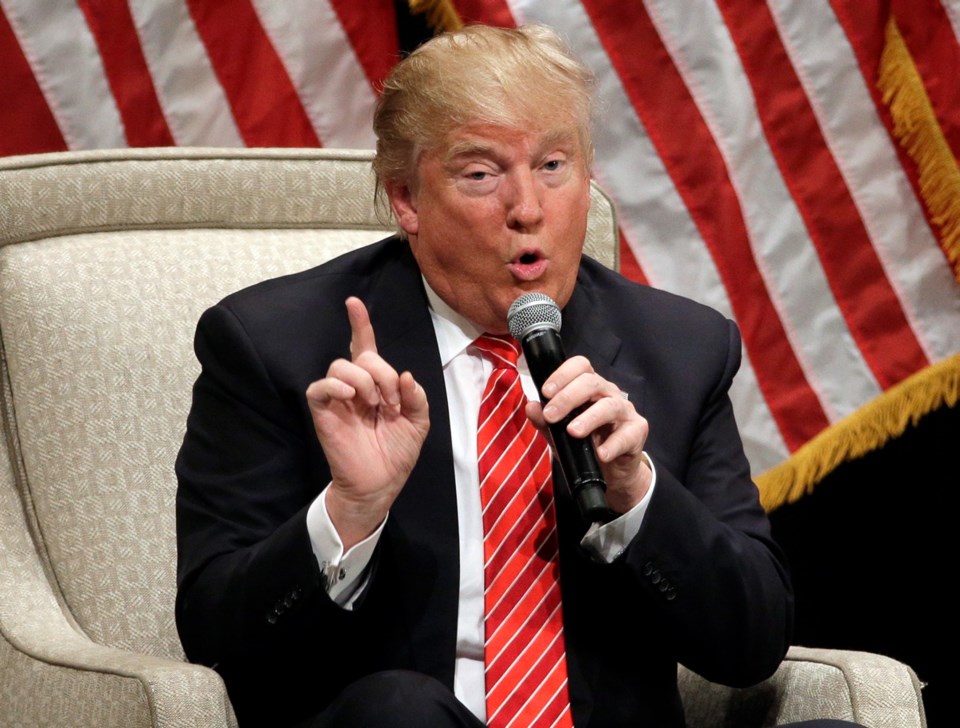 Pretend for a second that there’s something happening in the world other than the rise of Donald Trump and the fall of civil society.
Pretend for a second that there’s something happening in the world other than the rise of Donald Trump and the fall of civil society.
Pretend it’s possible to tear your eyes away from a candidacy fuelled by the kind of loutish behaviour that in saner days would have meant automatic expulsion from any political race.
Pretend that you even knew that much of Ethiopia is starving, again.
Ran into a slightly frustrated Jeremy Hespeler-Boultbee this week, preparing for a trip to an African country that lost its Flavour of the Month status with the western world long ago.
You might have read of Hespeler-Boultbee. The 80-year-old has led a life that reads as though it were ripped out of the pages of an old-fashioned Boy’s Own Annual: Born in Vancouver, graduated from an English boarding school, then off to Kenya as a barely shaving officer in the King’s African Rifles during the Mau Mau insurrection of the 1950s.
He chronicled the latter experience, including his gradual disillusionment with the colonial system, in his memoir Mrs. Queen’s Chump. (The title came from future Ugandan dictator Idi Amin, who as a soldier under the Canadian’s command declared: “Mrs. Queen get good mileage out of you!”)
Back in Victoria in the 1960s, he worked as a reporter for the Daily Colonist and earned a fine arts degree at the University of Victoria, launching a career in journalism and academia that eventually led to 25 years in Portugal, where he became a professor of architectural history.
It was his research into Portuguese explorer Pêro da Covilhã’s quest for the legendary Christian kingdom of Prester John in 15th-century Ethiopia that first brought Hespeler-Boultbee to the East African country in 1996. Over time, he became associated with universities there.
He now lives in Victoria with his Ethiopian-born wife, Alemie. In April, they’re heading to Ethiopia and her home city of Bahir Dar, where he used to work, for an extended stay.
They had hoped to return there with $20,000 for a kindergarten they support, one for children from poor families. That would have been a lot of money for a school where parents pay $1 a month so that their children can have tea and bread once a day — often their only meal.
“The loose change you have in your pocket at the moment would keep a kid alive for a week,” Hespeler-Boultbee says.
Unfortunately, the Victorians fell well short of their goal, only reaching $2,400, which the school wants to use to buy tables and chairs so that the children have somewhere to do their work.
“I’m not a fundraiser,” Hespeler-Boultbee says.
He shouldn’t feel bad. At least he and Alemie are trying.
And it’s not as though he’s the only one having a hard time getting people to pay attention to Ethiopia. News stories this week outlined the difficulty the Ethiopian government and United Nations are having drumming up $1.4 billion to feed 10 million people left starving by the country’s worst drought in decades.
In essence, the stories say, those who pay attention to the world at all have become fixated on Syria and (to a lesser extent) Yemen, to the exclusion of all else. The same photos — hungry children and desiccated cattle on the dry, cracked Ethiopian earth — that galvanized Bob Geldof and the West in 1984 remain unseen today.
Even the most open-hearted among us are, it seems, selective in their attention and their sympathies, getting fired up about certain causes to the exclusion of all others.
Note, for example, that the UN warned Tuesday that Zimbabwe’s malnutrition rates are in danger of “spiralling out of control” after two years of no rain. A poor harvest, blamed on the El Niño weather system, has also left people hungry in Malawai, Madagascar, Lesotho and elsewhere in southern Africa.
We could pay attention to that, or we could go back to listening to Trump tell his crowds of adoring followers — every one of whom had more than tea and bread that day, and every one of whom got to go to a school with tables and chairs — how badly off they are, how they’re victims and how they deserve more.



